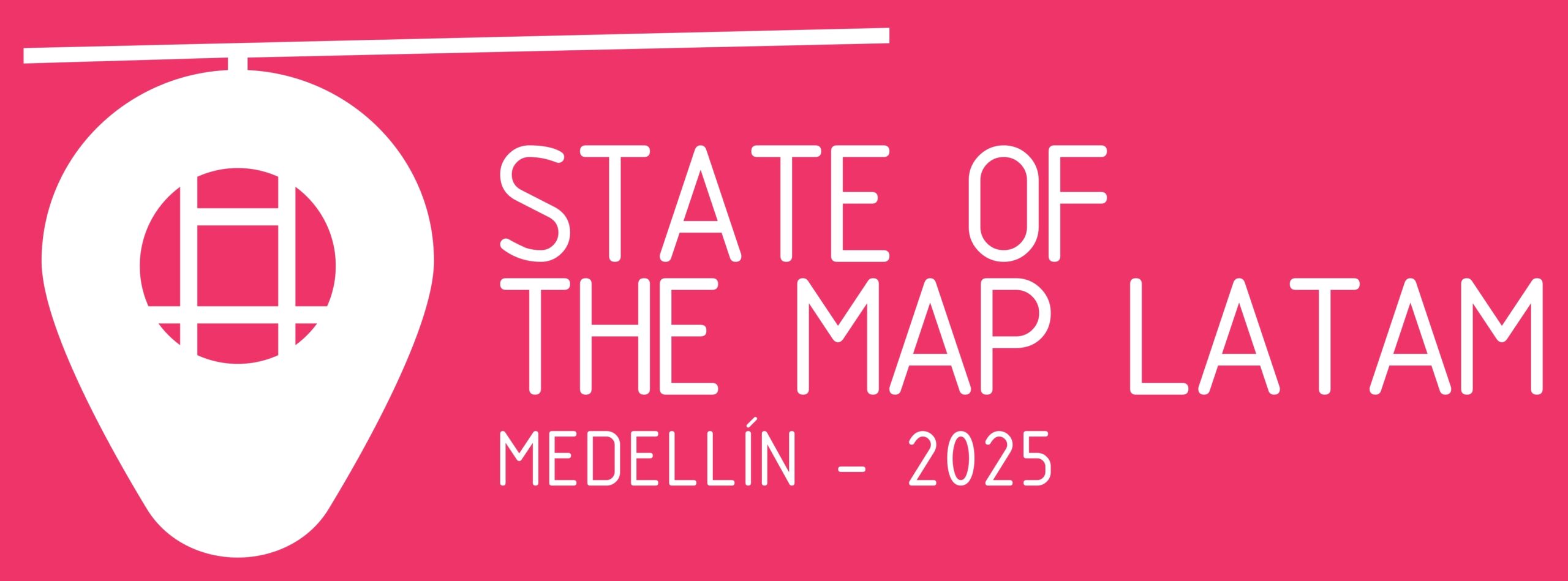General Aspects
The Academic Presentations are sessions dedicated to scientific research on and with OpenStreetMap (OSM). Its goal is to showcase research and innovation in scientific studies about OSM while also providing a bridge to connect members of the OpenStreetMap community and the academic community through an open space to exchange ideas and opportunities for further collaboration.
We welcome empirical, methodological, and conceptual contributions, literature reviews, case studies, work-in-progress papers, or software tools (with proper scientific justification), open research questions in OpenStreetMap, and challenges for the scientific community. In general, we encourage submissions addressing any scientific aspect related to OpenStreetMap, particularly but not exclusively, the following:
- Cultural, political, and organizational aspects: Cultural, political, and organizational dimensions of data production and usage practices in OpenStreetMap.
- Teaching and learning processes: OSM in formal and informal education, including popular education and community-based learning initiatives.
- Social and humanitarian dimensions: OSM’s role in bridging the digital divide, with special emphasis on collaborative work with vulnerable populations.
- Dataset analysis: Evaluation or analysis of new dataset creation, data import procedures, integration with other data sources, data quality assessment, usage implications, and analysis of contribution patterns in OpenStreetMap.
- Software tools: Tools available for scientific purposes related to OpenStreetMap, including AI-assisted mapping technologies.
- Case studies: Innovative approaches to enhance or facilitate data collection and data quality in OpenStreetMap (e.g., through gamification, citizen science methods, participatory mapping, social cartography, or crowdsourcing).
To enhance engagement and collaboration between academia and the OpenStreetMap community, submissions should emphasize the real-world applications or broader impact of their research on OpenStreetMap practices, tools, or data.
Submission Guidelines
Contributions will be accepted in a two-stage submission process. Authors must complete both stages successfully for their work to be accepted for conference presentation and included in the conference proceedings.
Step 1
Authors may submit extended abstracts (in English, Spanish, or Portuguese). The submission deadline is May 15, 2025. Abstracts must be strictly limited to 2 pages, as these constraints will be rigorously enforced to ensure a fair and equitable review process.
Submissions must demonstrate scientific rigor and follow a logically structured format (without mandatory subsections), organized as follows:
- Introduction, background, or context, situating the research and presenting the problem addressed.
- Primary objective or purpose of the study.
- Brief description of the methodology and key results.
- Final discussion, highlighting the study’s scientific contribution and its practical implications or benefits.
All submissions must be made through the State of the Map Latam 2025 Pretalx submission system. Manuscripts must be submitted in PDF format, strictly adhering to the template provided by The International Archives of the Photogrammetry, Remote Sensing and Spatial Information Sciences (ISPRS), available here.
The Academic Committee will conduct a rigorous evaluation of all submitted abstracts. Authors will receive detailed feedback on their submissions, and for accepted abstracts, specific recommendations for improvement that had to be incorporated into their full papers before submission on Step 2 of the process.
Step 2
If the abstract has been accepted, authors must submit a complete unpublished research article (in English, Spanish, or Portuguese) with a length of 6 to 12 pages, using the State of the Map Latam 2025 Pretalx submission system. The submission deadline is July 31, 2025.
Submitted papers will not undergo further content review—acceptance is based solely on the abstract. However, all submissions will be checked for compliance with the provided template (see below) and screened for plagiarism using specialized software. Papers may still be rejected if authors fail to adhere to the template guidelines.
Only the works of authors who have submitted an extended paper (in compliance with the provided template) will be included in the academic presentation program. In other words, no presentations will be permitted in the academic presentation program without prior submission of the full paper.
Accepted papers presented at the conference will be published as a collection, each assigned a unique Digital Object Identifier (DOI) on Zenodo, an open-access online repository.
All submitted articles must adhere to the author guidelines of The International Archives of the Photogrammetry, Remote Sensing and Spatial Information Sciences (ISPRS). A template is available in LaTeX and DOC formats here.
Schedule and Deadlines
March 17, 2025: Call for proposals announced.
May 15, 2025: Deadline for academic abstract submissions.
June 15, 2025: Notification of accepted academic talks.
July 31, 2025: Deadline for full academic paper submissions.
August 15, 2025: Final conference program published.
September 4–6, 2025: State of the Map Latam 2025.
Other Links
If you’re interested in giving a talk or hosting a workshop, please visit this page: Call for Talks and Workshops SotM Latam 2025


Deja una respuesta